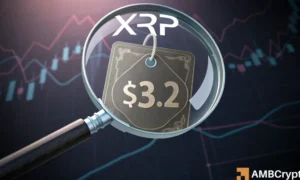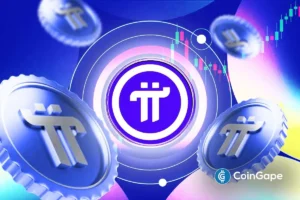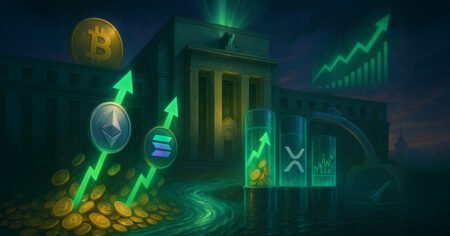Ethereum’s Groundbreaking Move Toward Autonomous Agent Economies
Ethereum is at the forefront of a transformative initiative aimed at integrating autonomous agents within its blockchain. This shift positions Ethereum as a vital layer for machine-to-machine commerce, paving the way for a future where automated systems can negotiate, validate identities, and manage payments without custodial intermediaries. The Ethereum Foundation recently launched a dedicated dAI Team to focus on important aspects such as agent identity, trust, and payment protocols, spearheading this evolution with the development of the ERC-8004 draft standard for agent credentials and verifications.
Building Trust and Identity in Automated Systems
The formation of the dAI Team points to Ethereum’s ambition to establish a robust identity and trust framework at the protocol level. The introduction of ERC-8004 will facilitate on-chain identity and attestations, allowing autonomous agents to operate with a level of credibility not previously seen. This development is crucial as it directly correlates with Ethereum’s vision of a transparent and open-access environment for agent economies. With these enhancements, automated systems can perform actions such as negotiating terms, posting bonds, and executing escrow agreements, significantly reducing reliance on human oversight and custodians.
The Rise of AI-Enhanced Tokens
The momentum toward decentralized agent frameworks has already manifested in the crypto markets. AI-focused cryptocurrencies, including Bittensor, Fetch.ai, and Renderv, have exhibited resilience, managing to maintain on-chain activity during market downturns. Reports highlight a persistent demand for decentralized computational power and agent frameworks, indicating that investors are increasingly interested in technologies designed to accommodate AI applications. Furthermore, innovative DeFi platforms are emerging, contributing to the overall growth in total value locked (TVL) in decentralized finance. Token Metrics notes a rebound toward the $100 billion mark, driven by the introduction of AI-native DeFi features.
Convergence of Payment Protocols and Agent Applications
The intersection of payment protocols and autonomous agents is also becoming increasingly relevant. Google’s introduction of the Agents to Payments (AP2) protocol intends to standardize payment requests and confirmations made by software agents. This innovation serves as a foundational building block for machine-to-machine billing and subscription models that can seamlessly integrate with cryptocurrency settlement infrastructures. Early pilots inclusive of Ethereum are testing this concept, illustrating how the expanding role of agents in payments could lead to finer controls, such as restricting spending limits and requiring human oversight for significant transactions.
Projecting Future Adoption and Network Utilization
Looking ahead, analysts predict that AI-driven agents could account for a substantial portion of DeFi transactions by the end of 2026. Token Metrics’ scenario analysis estimates that AI agents could handle 15 to 20 percent of transactions in the DeFi ecosystem. As demand for identity and execution contracts increases, gas usage on the Ethereum network could rise by 30 to 40 percent quarter-over-quarter. Executing governance, treasury management, and liquidity operations through autonomous agents not only streamlines processes but also makes for a more efficient operational framework, ultimately paving the way for more responsive and intelligent smart contracts.
Security and Regulatory Considerations
As Ethereum’s roadmap progresses, the focus also shifts to security measures. Research indicates that adaptive, AI-assisted smart contracts may experience a significant reduction in successful exploits by using real-time anomaly detection and dynamic parameter tuning. The findings suggest that integrating advanced controls with transparent reporting could lead to a safer environment, bolstering overall confidence in autonomous systems. Concurrently, regulators in the U.S. and Europe are actively developing frameworks that emphasize the need for clear agent identities and usage policies. This regulatory alignment could usher in an era of compliant operations that harmonize with Ethereum’s foundational principles of decentralization and open access.
A Future of Interconnected Autonomous Economies
The evolution of the machine economy transcends individual platforms; Ethereum is poised to play a crucial role alongside other ecosystems like Avalanche, NEAR, and Internet Computer. The development of decentralized inference and coordination makes agents integral to payments and fulfillment tasks across various layers of the blockchain landscape. As the demand for decentralized services and applications continues to escalate, the ability for software agents to interact seamlessly will only strengthen their role in the marketplace.
In conclusion, Ethereum’s dedicated efforts toward fostering an environment favorable for autonomous agents redefine the landscape for machine-to-machine commerce. With a focus on stable identities, secure transactions, and regulatory clarity, Ethereum could emerge as a foundational layer for a future dominated by intelligent, automated economic interactions. As these initiatives gain traction and standards mature, Ethereum stands to solidify its role as the operating system for non-human economic activity, propelling the advancement of the machine economy to remarkable heights.

















